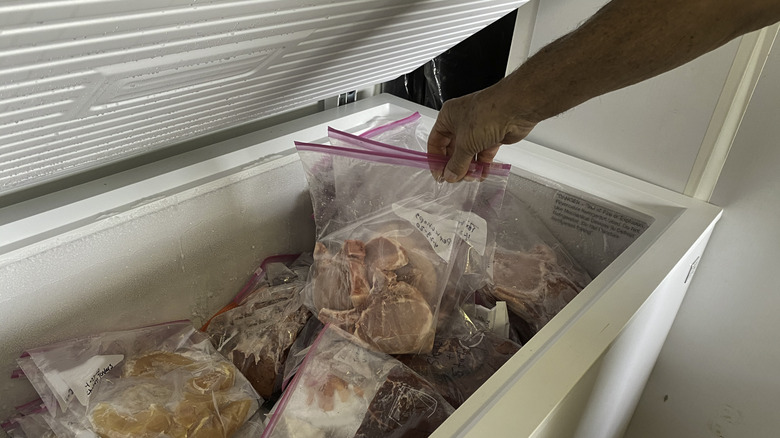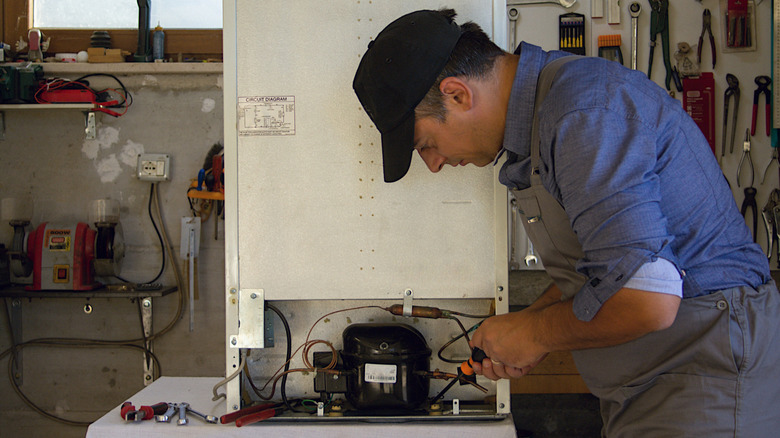Should You Keep A Freezer In The Garage? Here's What To Know Before Installing
For busy households, having an extra freezer in the garage is a no-brainer. It gives you ample space to stock up on bulk groceries or store big pre-made meals, as well as keep your family's favorite snacks on hand but out of the way. But despite the undeniable convenience, there are a few things to consider before getting a garage fridge or freezer. Keeping a freezer in your garage comes with potential risks like inefficient cooling, appliance failure, spoiled food and drinks, and even fire hazards.
Unlike the rest of your house, garages typically aren't fully insulated or temperature-controlled, and depending on where you live, this means they can experience all kinds of weather changes. If your freezer isn't built to handle freezing cold winters or melting hot summers, keeping it in this environment can cause it to malfunction — and leave you dealing with the frustrating consequences. Before plugging in that second freezer next to your lawn mower, the smart thing to do is consider all the risks and determine how you'll prevent potential problems.
Freezers aren't built for weather fluctuations of the garage
Most standard freezers are designed to run in the consistent, mild temperatures that you'd find indoors, as opposed to an overly cold or hot garage. It might sound surprising, but in the winter, cooling appliances can shut down altogether. This is why cold weather is bad news for your garage fridge — if the temperature in your garage dips below 32 degrees Fahrenheit, the freezer's compressor might slow down or stop running altogether because this is the low end of the optimal performance range. When the outside temperature gets below this threshold, your freezer might mistake the exterior low temp for an already-frozen interior and shut down because it registers further freezing as unnecessary.
Meanwhile, in the summer, a freezer might overwork itself just to stay cool in your garage, risking burnout. Over time, this stress on the freezer's components can cause malfunctions that might lead to short circuits. That's where the fire hazard comes in — overheating or electrical faults from a struggling appliance can pose a serious risk.
But if you have your heart set on placing a freezer in your garage, all's not lost. You can still install one in this space without worrying about the risks. The trick is to look for a garage-ready cooling appliance. These freezer models are specifically built to handle extreme temps without breaking a sweat, keeping you safe from common risks while providing that sweet, sweet extra storage space. While they're slightly more expensive than standard freezers, their ability to withstand outside temperatures ranging from 0 to 110 degrees Fahrenheit without breaking down makes them worth every extra penny for those eager to equip their garage with a cooling appliance.

